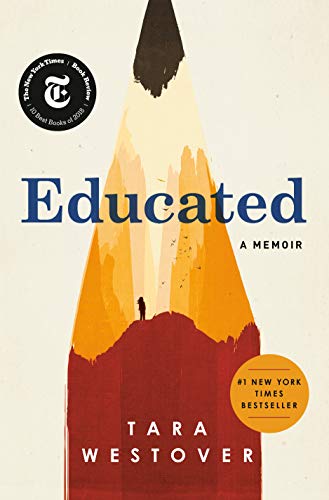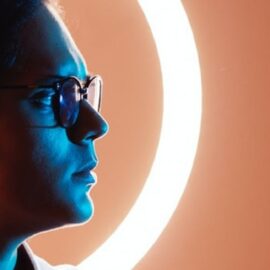

This article is an excerpt from the Shortform summary of "Educated" by Tara Westover. Shortform has the world's best summaries of books you should be reading.
Like this article? Sign up for a free trial here .
When you’re sick or injured, can homeopathy cure or heal you? Although some people swear by homeopathic remedies, many people say homeopathy doesn’t work.
One person suggesting homeopathy doesn’t work is Tara Westover. In her memoir Educated, Westover writes about her family’s anti-medicine stance and her parents’ dependence on homeopathy rather than hospital visits. Below, read about how homeopathic remedies were used in her childhood home.
Rejecting the Medical Establishment
Gene, Westover’s father, believed that the “Medical Establishment” injected brainwashing drugs into people’s bodies. As a result, he refused to let the children go to the doctor, even when they sustained grievous injuries working in his junkyard or when they got debilitatingly sick.
This was an outgrowth of his religious fundamentalism. Gene insisted that God had provided all the medicine that anyone would ever need in the form of natural herbs and oils which could be manufactured and administered right in the home on Buck’s Peak. Indeed, he would come to refer to these remedies as “God’s Pharmacy.”
His wife Faye acted as the family’s primary medical caregiver, concocting homeopathic remedies for the children. Tara and her siblings were treated with their mothers’ herbal mixtures of calendula, lobelia, and witch hazel. At this point in her life, Tara had not yet decided that homeopathy doesn’t work.
The First Sign That Homeopathy Doesn’t Work
Once, when Tara was 12, she started suffering from painful sore throats. After Faye failed to reduce her swelling with echinacea and calendula, Tara was instructed to let the sun shine into her throat—to allow the supposed healing powers of the sun to cure her. For a month that winter, she laid out in the backyard of their home for up to 30 minutes every day, with her mouth agape, to no effect whatsoever.
Nevertheless, even though homeopathy didn’t work in this instance, Faye’s alleged expertise in homeopathic medicine won her a reputation as an effective healer among those in the area who similarly rejected medical science.
Homeopathic Remedies and Energy Healing
Later, Tara and her family were in a serious car crash. Faye came out of the crash worst of all. Although she was never properly treated for it, her post-crash symptoms as described by Tara clearly point to a severe and permanently damaging concussion.
One might have thought that the trauma she suffered would have been a wake-up call to Faye. The homeopathic remedies couldn’t treat the concussion or subsequent symptoms, and she might have come to the conclusion that homeopathy doesn’t work.
But the opposite happened. Her survival only seemed to deepen Faye’s belief in her healing powers. Although still clearly suffering from the effects of the concussion, Faye redoubled her efforts to manufacture large batches of essential oils out of herbs like eucalyptus, sandalwood, and ravensara. She mixed different combinations together, believing that each mix had specific properties that could cure specific ailments. Over the years, she would create dozens of these “medicines.”
She also delved deeper into pseudo-scientific New Age “energy healing,” believing that she could use the power of energy to cure injuries and disease, simply by laying her hands on someone in the right places and applying the right amount of pressure. She claimed that God was working through her fingers. Tara recalls diagrams of chakras and pressure points appearing throughout the house around this time.
Soon, Faye began selling her blended oils and charging clients for “energy work.” She may have had no license or training, but Tara’s mother was well on her way to becoming the established medical authority for fellow off-the-grid families in their county. Eventually, Faye came to believe that she could diagnose illnesses simply by touching people and objects. In effect, she had come to believe that she possessed magical powers. She was not in a position to look at her remedies critically or objectively and see that homeopathy doesn’t work.
Taking Medicine
As Tara got older and learned more about the world outside her family’s compound, she started to believe that homeopathy doesn’t work. One night, while driving with her friend Charles, Tara complained of a debilitating migraine. She told him that she had taken some lobelia and skullcap for the pain. Predictably, Faye’s homeopathic remedy failed to alleviate Tara’s symptoms.
Charles then suggested to Tara that she take a real painkiller, which he proceeded to retrieve out of his medicine cabinet. Tara initially balked. Imbibing the products of the hated and feared medical establishment would fly in the face of one of her father’s core teachings. But as Charles questioned why she believed taking a pill would be so harmful, she realized she had no answer. She couldn’t even articulate what she thought would happen if she took the pill.
She gave in to reason and took the painkiller. Within 20 minutes, her headache was gone. The pill had been more effective in 20 minutes than lobelia and skullcap had been in a lifetime.
Looking back, Tara seems to believe that homeopathy doesn’t work. These medicines were never effective in curing illnesses, or even in relieving pain. She endured years of needless suffering because of her parents’ anti-medical ideology.
———End of Preview———

Like what you just read? Read the rest of the world's best summary of "Educated" at Shortform . Learn the book's critical concepts in 20 minutes or less .
Here's what you'll find in our full Educated summary :
- How Tara Westover was abused by her brother as a child
- Why Tara's parents set up the children for failure
- How Tara ultimately broke out of her parents' grasp and succeeded for herself






